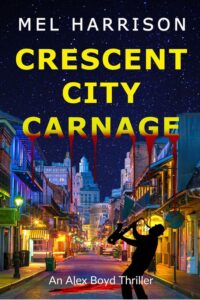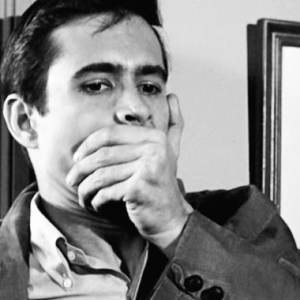When I contemplated writing my action thriller series, I accepted advice that new authors should write about what they know. This was sound advice because over my twenty-eight year career in the Foreign Service, mostly within the Diplomatic Security Service, I felt my experiences provided an exciting basis for the development of fictional stories.
I drew on settings where I had lived, worked, or visited for business, such as Islamabad, Rome, Paris, Cairo, and London. For my latest book, Crescent City Carnage, I decided to use a domestic setting where I had lived several times. I speak of New Orleans, a unique city in America. There are many more locations in my six books where I had spent time, and they feature in the books. These include Luxembourg, Montreal, and Buenos Aires. I think of each setting as a character to be explored and described for the reader. Each place is linked to the plot of the story, as it must, otherwise the books would merely be a travelogue.
Because of the variety of assignments I had, I was able to create exciting stories with different subjects ranging from terrorism, to kidnapping, to deadly riots, to espionage, and to murder. These are often typical challenges that a Diplomatic Security special agent must face, as I did. Naturally, I enhanced each fictional story to stimulate the reader’s interest.
A challenge a writer faces is to create memorable characters. Some characters will be heroes, others villains, and a many others will be necessary to move the plot along, even if their appearance will be brief. Readers want to identify with the good guys and despise the evil ones. I drew on my experience serving in many embassies and in Washington, DC, to mold characters with real personalities. Cardboard stereotypes can never suffice. Even bad guys have families and friends. Lucky for me, there were plenty of diverse personalities in the Foreign Service to select individual traits from and combine these into one character after another.
Because my stories are based upon my experience, I avoided any storyline where my protagonist literally saves the world from destruction by himself or herself. Such over-the-top stories are just too fantastic, even though they often form the basis of the thriller genre. This is why I portray my protagonist, special agent Alex Boyd, collaborating with other agencies such as the CIA or the local police to deal with the problem. This doesn’t mean that lives are not at stake in my books. To the contrary, terrorism and espionage are very real and can be life threatening. It just means that I won’t have Alex Boyd stopping a nuclear war or eliminating an entire terrorist organization.
Some of my career was spent in countries where my local contacts did not speak English. While I could use interpreters, it was always best if I could speak the language. That’s why I had both Alex Boyd and Rachel Smith, his wife and embassy press officer, fluent in many languages. Alex’s fictional parents both worked for the CIA and he grew up in Paris and Cairo. He, therefore, speaks French and Arabic. Later, as a State Department officer and assigned to embassies in Argentina and Italy, he picked up Spanish and Italian. Rachel studied Chinese at UCLA and once on-board with the State Department, she was assigned to Hong Kong and Beijing before she met Alex. Her Chinese is excellent, as is her Italian and French. The trick in my books is to let the reader know when the conversation is taking place in the foreign language, without bombarding the reader with phrases that they don’t understand.
Today, we take for granted the internet. But, it is a fairly recent invention, just as are the cell phone and laptop. When I worked in the Foreign Service (1971 to 1999), this time period pre-dated these inventions. Therefore, social media did not exist. It was a requirement of employment that we all supported the policies of the current administration, regardless of political party. If you could not do so, then you should resign. I never really knew the personal politics of my fellow employees. This is one reason why my books do not address such matters. Moreover, I believe my books should be entertaining for a reader, not a political diatribe that pounds the reader with a point of view. Of course my characters will occasionally disagree with a Washington directed policy, but this has more to do with bureaucracy than politics.
In summation, by writing these books I wanted to expose the reader to a world of excitement, danger, wonder, and different cultures. I wanted them to have a basic grasp of working in the Foreign Service and living abroad, to see the challenges and stress of a diplomatic life in sometimes dangerous locations. Such a life can have its share of cocktail parties and black-tie dinners, but it can also be filled with spies trying to steal America’s secrets and terrorists trying cut off your head.
As a colleague once told me when recounting an actual attack that burned down his embassy in the Middle East, “Hey, anyone can have a bad day.”
***


















